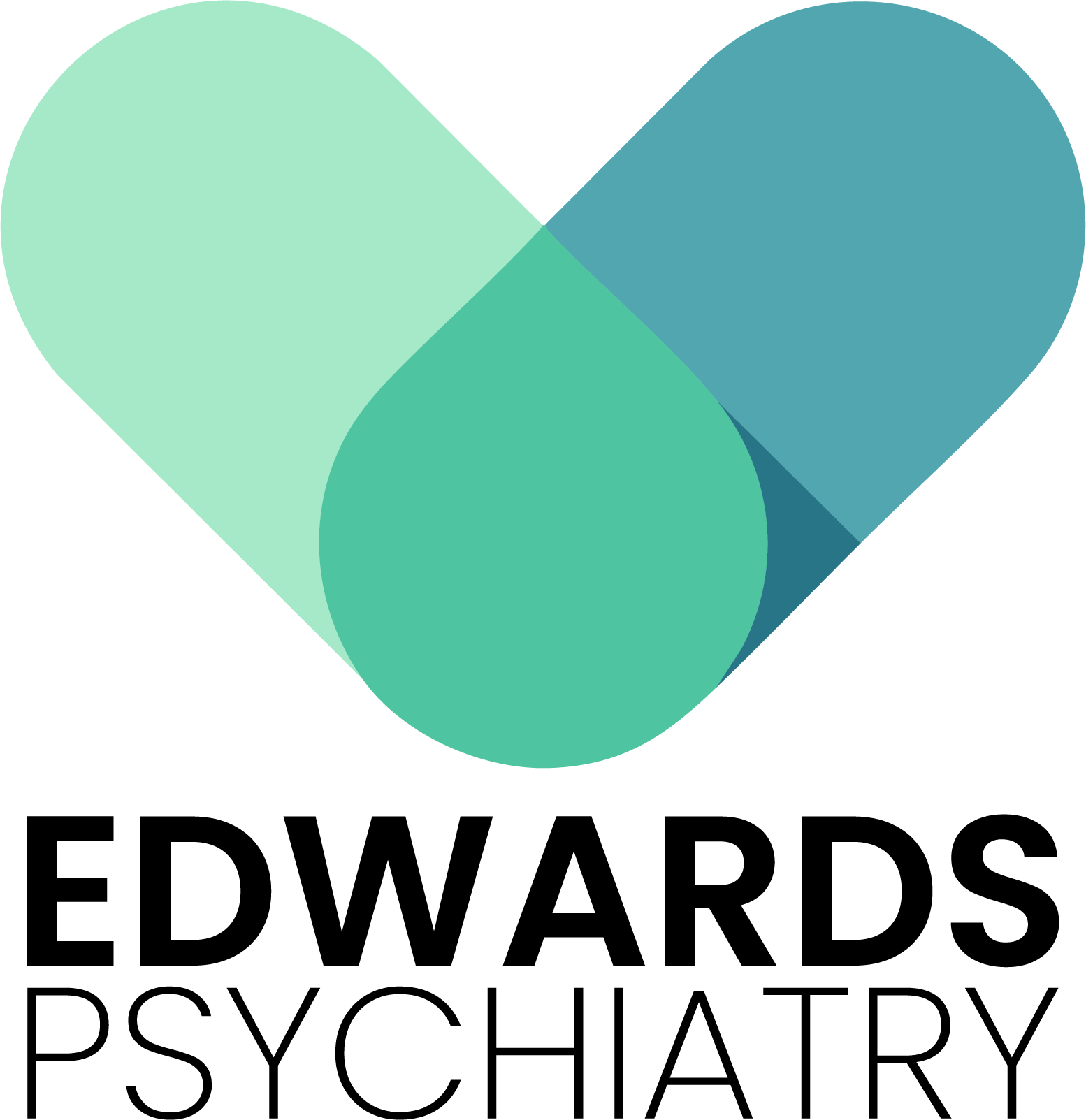Medication Roulette: Why Genetic Testing Could End Your Trial-and-Error Nightmare
Finding the right psychiatric medication can sometimes feel like spinning a roulette wheel. Will this one finally help? Will it make you feel worse? Or will you have to start over again with another prescription?
At
Edwards Psychiatry, we understand how discouraging that cycle can be. That’s why we offer pharmacogenetic testing: a way to use your DNA as a guide for more informed prescribing. While it’s not a magic fix, it can reduce the trial-and-error and help us choose medications that are more likely to work with your unique biology.
This article will break down what genetic testing is, how it works, when it’s most useful, and how we integrate it into a bigger picture of personalized mental health care.
Why Medications Work Differently for Everyone
Two people can take the same antidepressant or ADHD medication and have completely different outcomes. One may find relief, while the other has no benefit—or ends up with side effects that outweigh any gains.
That’s because your response to medication isn’t one-size-fits-all—it’s shaped by a unique mix of factors, including:
- Genetics – how your genes influence the way medications work in your body, including potential benefits and side effects
- Metabolism – whether your system processes medications more quickly or slowly than average
- Other medications or supplements – which can interact in ways that affect safety or effectiveness
- Lifestyle factors – such as diet, sleep, stress levels, and movement, all of which can impact how you feel on a medication
Traditional prescribing often means trying one medication, waiting weeks, then adjusting or switching if it doesn’t help. While careful monitoring is important, the process can feel slow, frustrating, and unpredictable.
What Is Pharmacogenetic Testing?
Pharmacogenetic (PGx) testing is a simple cheek swab or saliva test that looks at specific genes involved in how your body processes psychiatric medications. These genes can influence:
- How quickly your body breaks down a drug
- Whether you may need higher or lower doses than average
- Which medications are more likely to cause side effects for you
It doesn’t diagnose conditions or guarantee a “perfect match,” but it provides a helpful roadmap to guide safer, more effective medication decisions.
When Can Genetic Testing Help?
Genetic testing can be especially useful if you’ve:
- Tried several medications
without much improvement
- Experienced strong or unusual
side effects
- Needed multiple prescriptions
at once
- Have a family history of poor medication response
Results are most often applied to medications like:
- Antidepressants (SSRIs, SNRIs)
- ADHD medications (stimulants and non-stimulants)
- Mood stabilizers
- Anti-anxiety medications
By knowing whether your body processes certain medications too quickly, too slowly, or in a way that increases side effects, we can avoid options that are unlikely to help (and focus on those with a better chance of success).
What Testing Can (and Can’t) Do
Pharmacogenetic testing is powerful, but it’s important to keep expectations realistic:
It can show how your body may process different medications.
It can highlight which medications might cause side effects or be less effective for you.
It cannot diagnose mental health conditions.
It won’t guarantee the “perfect” medication, but it narrows the field in a meaningful way.
It doesn’t cover every medication yet—some aren’t fully mapped to genetic markers.
At
Edwards Psychiatry, we always combine genetic data with your medical history, symptoms, and treatment goals to create a personalized plan.
Integrative Psychiatry: More Than Just Genetics
Pharmacogenetic testing is one tool we use in a broader integrative psychiatry approach. Your care may also include:
- Evidence-based medications tailored to your genetics
- Nutritional support and targeted supplements
- Mind-body strategies like mindfulness or yoga
- Lifestyle support for sleep, stress, and exercise
This whole-person model helps us reduce the frustration of trial-and-error while supporting your long-term wellbeing.
FAQs About Pharmacogenetic Testing
Does insurance cover it?
Sometimes. Coverage depends on your plan, medical history, and the lab.
How long do results take?
Typically 2-3 weeks from start to finish.
Is it painful?
Not at all, just a cheek swab or saliva sample.
Will it tell me if I have depression or ADHD?
No. The test doesn’t diagnose conditions, it only informs medication choices.
Can I use the results with other providers later?
Yes. Once you have your report, you can share it with any doctor.
Taking the Next Step
If you’re tired of “medication roulette” and want a more personalized approach, pharmacogenetic testing may be worth considering. At
Edwards Psychiatry, we combine cutting-edge science with compassionate, integrative care to help you move forward with confidence.
Schedule a free consultation with our founder, Domenique Edwards, ARNP, PMHNP-BC to learn more about whether genetic testing could support your treatment journey.
Your brain is unique, Your treatment should be too.
Share This Post
About the Author:
Domenique Edwards, MSN, ARNP, PMHNP-BC
Domenique is the founder of Edwards Psychiatry and a Board-Certified Psychiatric-Mental Nurse Practitioner specializing in ADHD care for adults and families. As a multiracial Black and Italian clinician, she brings both clinical expertise and lived understanding to mental health care, particularly for BIPOC and LGBTQIA+ communities.
Trained at a top university, Vanderbilt University School of Nursing, Domenique has been practicing independently in Seattle since 2017. She's passionate about providing the kind of collaborative, culturally competent psychiatric care she wished her own family had access to, where patients feel truly heard and understood.
You Might Also Like






